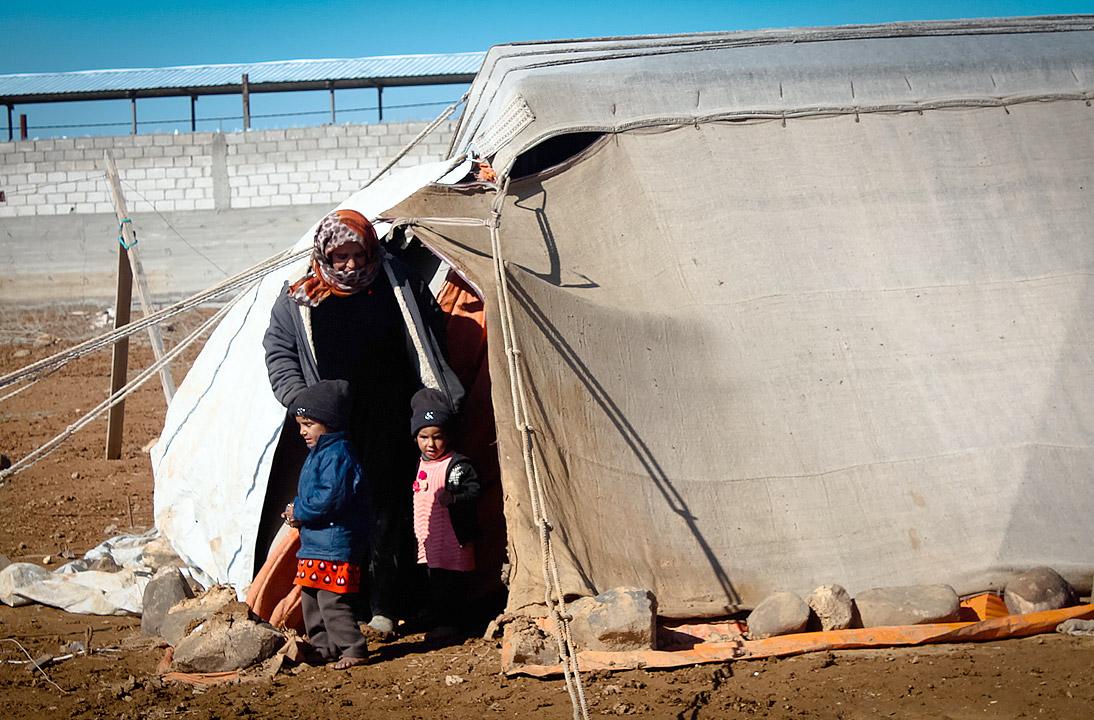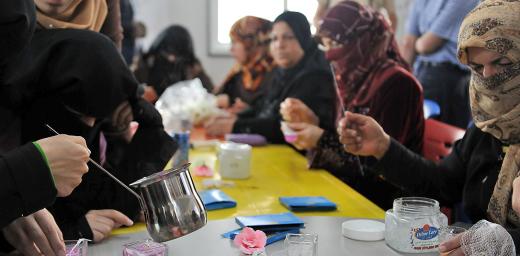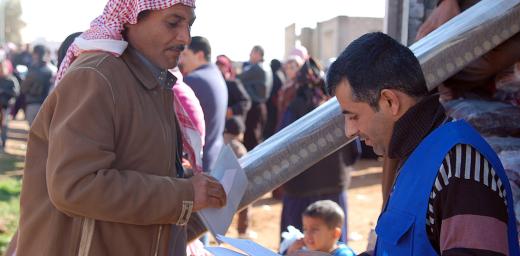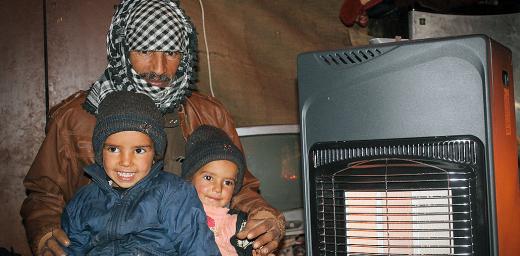A Candle in the Dark: Personal Reflections on the Situation of Syrian Refugees

Photo: LWF/Sandra Cox
By Rifat Kassis
Global and local statistics confirm that around 80 percent of Syrian refugees in Jordan live in northern cities, while the remaining 20 percent live in four camps: Za’atari, Marjeeb al-Fahood, Cyber City, and Al-Azraq.
Since the start of the Syrian crisis in March 2011, northern Jordan has exploded with Syrian refugees fleeing the war. The Jordanian residents of this area – already poor themselves – responded with their natural hospitality, willingly hosting their Syrian brothers and sisters. Jordanian and Syrians alike thought that their problems would last for days or weeks at most.
“They are poor people”
On an early visit as Representative of The Lutheran World Federation (LWF) in Jordan, I went to a village called Mafradat in Mafraq. There I met a Jordanian man who was supporting his family and was himself receiving assistance from LWF. Despite his own poverty, he had been voluntarily caring for two Syrian refugee families who lived in an abandoned factory nearby – another generous gesture from the factory owner himself. When I asked the man if he was related to the two families, he said no; he had met them just recently. Noting my raised eyebrows, he added, “They are poor people.” This is a man who lives in a tent with his family on a piece of land offered to him by a nearby plantation owner; the owner had asked him to guard the place for 100 JD a month – in addition to free electricity and water, which he had to transfer from the plant to his tank.
Jordanians have welcomed more than a million refugees, including 620,000 registered with the UN Relief and Works Agency for Palestine Refugees in the Near East (UNRWA), on top of the problems they already face. This new situation and the regional turmoil cause serious challenges for Jordan: political instability, economic deterioration, and changes in the Jordanian social fabric.
Hearing the Jordanian man refer to the two Syrian refugee families as “poor people,” I remembered a meeting I had attended the day before with someone from the global North. He told me sadly that his country, although one of the richest on earth, was only able to resettle a “maximum capacity” of 2,000 Syrian refugees over two years.
No Money for School
Accompanied by the Jordanian man I met in Mafradat, we went to visit the two Syrian families. Given my child rights background, my focus was on the children. Eleven children live with their two parents in four rooms: about 50 square meters total. One of the rooms was filled with water leaking from the roof and rendered uninhabitable.
I asked one of the boys how old he was. Fifteen, he said, although he looked about 10 years old. “Do you like school?” I asked. He answered, “I don't go to school!” “Why?” I asked. His mother spoke up to say that his classmates had bullied him until he refused to go back. “And the other kids?” – “It became too expensive for us,” they told me. They used to rent an apartment in Mafraq, but the rent increased, so they came to this deserted place. I had one more question for the children: “Do you fight among yourselves?” – “No,” they said. “We like being together. Next time bring us a football if you can.”
Child Labor and Exploitation
Statistics suggest that around 100,000 children have been orphaned or separated from their parents in the Syrian conflict. According to the refugee agency UNHCR, over 70,000 Syrian refugee children live without their fathers in Lebanon and Jordan alone.
Traveling from Mafraq to Zarqa on the way to Amman, I learned about many child refugees who have become their families’ primary breadwinners. Child labor has reached critical levels among Syrian refugees. The director of a local non-governmental organization (NGO) in Zarqa told me that children as young as seven are working long hours for little pay, sometimes in dangerous or exploitative conditions. She expressed her gratitude for the work of LWF and many other humanitarian organizations, but stressed that the needs far exceed what they can offer. She also told me that the desperation of Syrians and Jordanians is often equally great: although she has spent many years working with Palestinian and Iraqi refugees, the present situation is unprecedentedly dire, she said, and the international community must increase its support to face the tragedy.
I made my way home with tears in my eyes and an aching heart. Just before dinner, I described what I had seen that day to my wife and son. We wept together. My son, Saif, recalled lines by the famous Palestinian poet Mahmoud Darwish:
As you fix your breakfast, think of others. Don't forget to feed the pigeons.
As you fight in your wars, think of others. Don't forget those who desperately demand peace.
As you pay your water bill, think of others who drink the clouds' rain.
As you return home, your home, think of others. Don't forget those who live in tents.
As you sleep and count planets, think of others. There are people without any shelter to sleep.
As you express yourself using all metaphorical expressions, think of others who lost their rights to speak.
As you think of others who are distant, think of yourself and say “I wish I was a candle to fade away the darkness.”
Listening to our son, recalling the day’s events, we struggled to eat. We went to bed with dinner still on the table, untouched.
Rifat Kassis is the Country Representative of LWF Jordan





